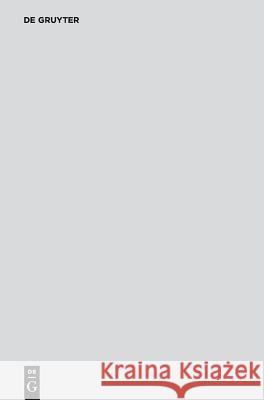Psycholinguistik. Psycholinguistics: Ein Internationales Handbuch. an International Handbook » książka
Psycholinguistik. Psycholinguistics: Ein Internationales Handbuch. an International Handbook
ISBN-13: 9783110114249 / Angielski / Twarda / 2003 / 958 str.
This handbook focuses on new theoretical challenges associated with process-oriented psycholinguistics. Speech acts are embedded in situations that may vary in a multitude of parameters. Speech production and comprehension necessarily have to be both robust and flexible. Flexibility includes that speakers vary in speed, articulation, choice of words and interaction style, depending on specific context conditions. There is need of theoretical approaches that do not exclusively stick to ideals such as grammaticality and coherence - which collapse when confronted with irregularities - but are robust enough to deal with irregularities and disruptions. The handbook describes different methods of analyzing or reconstructing variants and options of language use. The articles contain transcriptions of spontaneous speech as well as experimentally verified studies. The same holds for simulation techniques modelling partial processes and evaluating their efficiency. There are no restrictions with respect to theoretical starting points - modelling of speech acts by neuronal networks as well as rule-based knowledge of representation are both covered in the book. The languages of publication are German and English.











